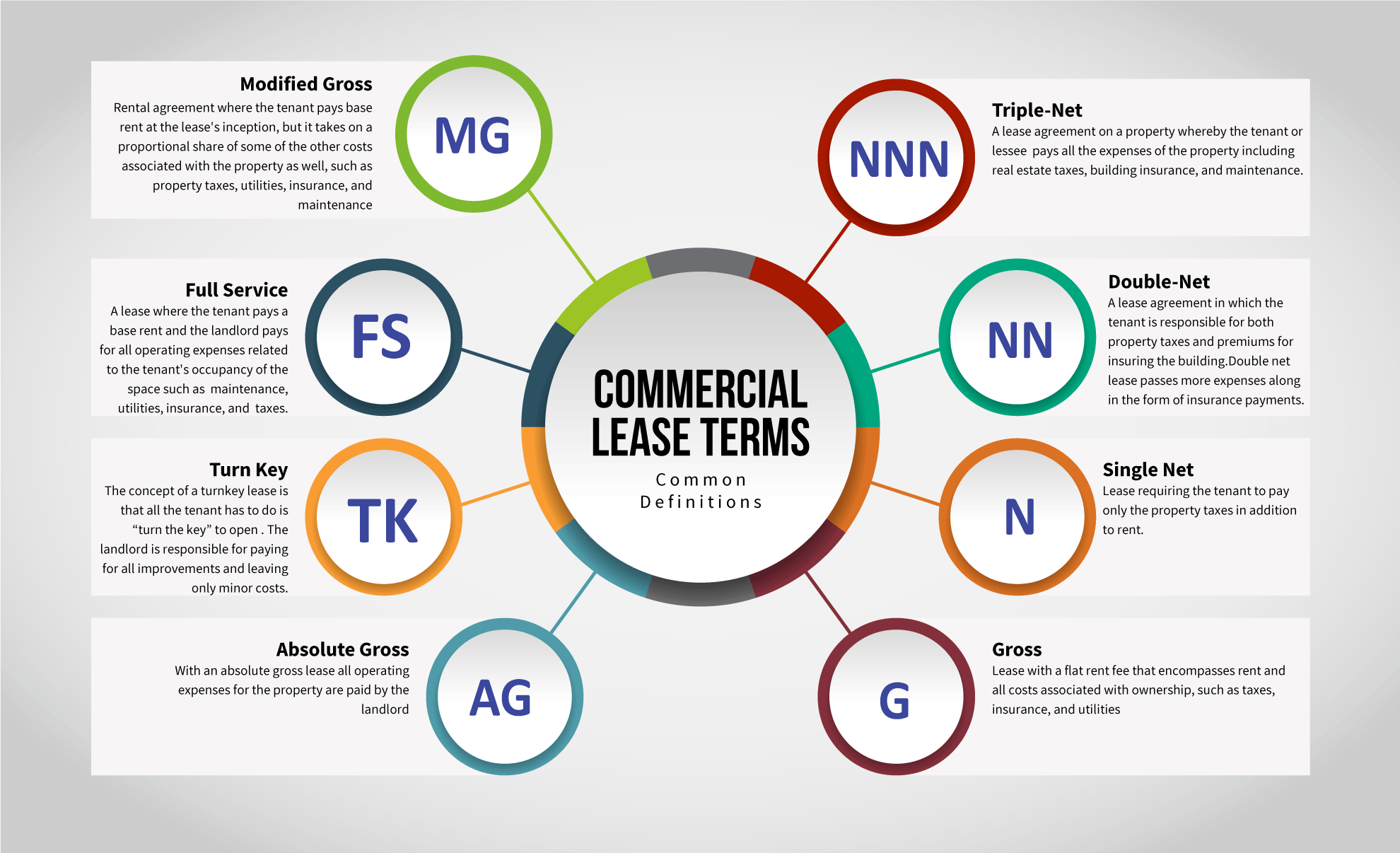

Understanding varied types of retail lease agreements is vital for achievement in the commercial real estate realm. A well-structured lease agreement safeguards both landlords and tenants, ensuring a mutually beneficial business relationship. However, navigating the complexities of retail leases can be daunting. This in-depth guide will break down the varied types of retail lease agreements, highlighting key clauses and potential pitfalls. By the end of this article, you’ll be equipped with the knowledge to make informed decisions when entering into a retail lease agreement. This article will cover the varied types of retail lease agreements, including examples and key considerations.
Defining Retail Lease Agreements
Types of Retail Lease Agreements
Retail lease agreements are legally binding contracts outlining the terms and conditions of renting commercial retail space. These agreements are crucial for both landlords and tenants, establishing clear expectations for rent, responsibilities, and other key facets of the business relationship. Understanding the varied types of retail lease agreements is essential for navigating the complexities of commercial real estate. varied types of retail lease agreements often dictate clauses associated with rent, maintenance, use, and other obligations.
Understanding Common Clauses
Key Clauses in Retail Leases
Retail leases typically include clauses covering rent, security deposit, maintenance, use restrictions, and more. These clauses may vary based on the specific circumstances of each agreement and the local regulations. Common clauses include provisions for rent boosts, lease renewal options, and the responsibilities of both the tenant and the landlord. An understanding of these clauses is key for both the tenant and the landlord. These provisions often impact profitability and risk assessment for both parties. For example, clauses related to rent escalation based on industry conditions or tenant improvement allowance can significantly impact a tenant’s bottom line.
Negotiating a Retail Lease
Strategies for achievementful Negotiation
Negotiating a retail lease requires a thorough understanding of the industry, the lease terms, and your needs. You should study the local industry rates to understand what is reasonable. Consult with legal counsel to determine potential issues and ensure your interests are protected. The negotiation process should focus on clarity, precision, and risk mitigation, and should ideally include a checklist of crucial considerations. Both parties should come prepared to negotiate the optimal possible terms.
Key Considerations for Both Parties
Tenant Responsibilities
Retail tenants need to carefully review the lease agreement. They should thoroughly examine clauses regarding maintenance, rent escalation, and renewal options. Tenants should consider legal implications, such as potential liabilities regarding the condition of the premises. The tenant’s long-term achievement may hinge on understanding these elements of the lease.
Landlord Responsibilities
Landlord’s function in the Retail Lease
Landlords have responsibilities to maintain the safety and suitability of the premises. These responsibilities are typically outlined in the lease agreement, and landlords need to be aware of local regulations concerning maintenance and safety standards. In some jurisdictions, there are specific codes or ordinances affecting the property and lease.
Understanding varied Lease Types
Various Retail Lease Structures
varied retail lease structures can have very varied implications for landlords and tenants. Understanding the various lease types is essential for informed decision-making. Net leases, for example, place a greater financial burden on the tenant. Conversely, gross leases offer more predictability for tenants while potentially limiting landlord flexibility.
The Importance of Legal Counsel
Seeking Professional Advice
When entering into a retail lease, seeking legal counsel is paramount. A qualified real estate attorney can help you navigate complex clauses, determine potential pitfalls, and ensure the agreement protects your interests. Legal counsel is a vital resource for interpreting nuanced lease agreements.
Risk Mitigation Strategies
Protecting Your Interests in a Retail Lease
Risk mitigation strategies are essential for both parties in a retail lease. Tenants should assess the potential for rent escalation and review renewal options, while landlords should examine the tenant’s financial stability and creditworthiness. Careful due diligence ensures a achievementful business relationship.
Case Studies and Examples
Real-world examples of Retail Leases
To offer more context, case studies involving retail leases can offer insights into common issues and optimal practices. achievementful or problematic lease scenarios can highlight critical elements for negotiation, review, and agreement.
This examination offers insights into real-world scenarios, providing further context and practical applications of the ideas presented earlier. Examples can demonstrate how critical provisions in retail lease agreements can influence outcomes for both landlords and tenants.
Examples might include leases for high-profile retail stores in urban areas compared to smaller stores in suburban locations. The differences in lease terms are crucial to understand. Studying examples can illuminate complex considerations that can arise in commercial real estate interactions.
In conclusion, understanding varied types of retail lease agreements is crucial for both landlords and tenants. This article has highlighted key facets of various agreements, offering valuable insights into navigating the complexities of commercial leases. By carefully considering the specifics of each agreement type and consulting with legal professionals when needed, parties can ensure a mutually beneficial and legally sound relationship. Now that you have a clearer understanding, take the next step by requesting a consultation with a real estate attorney specializing in retail leases.
